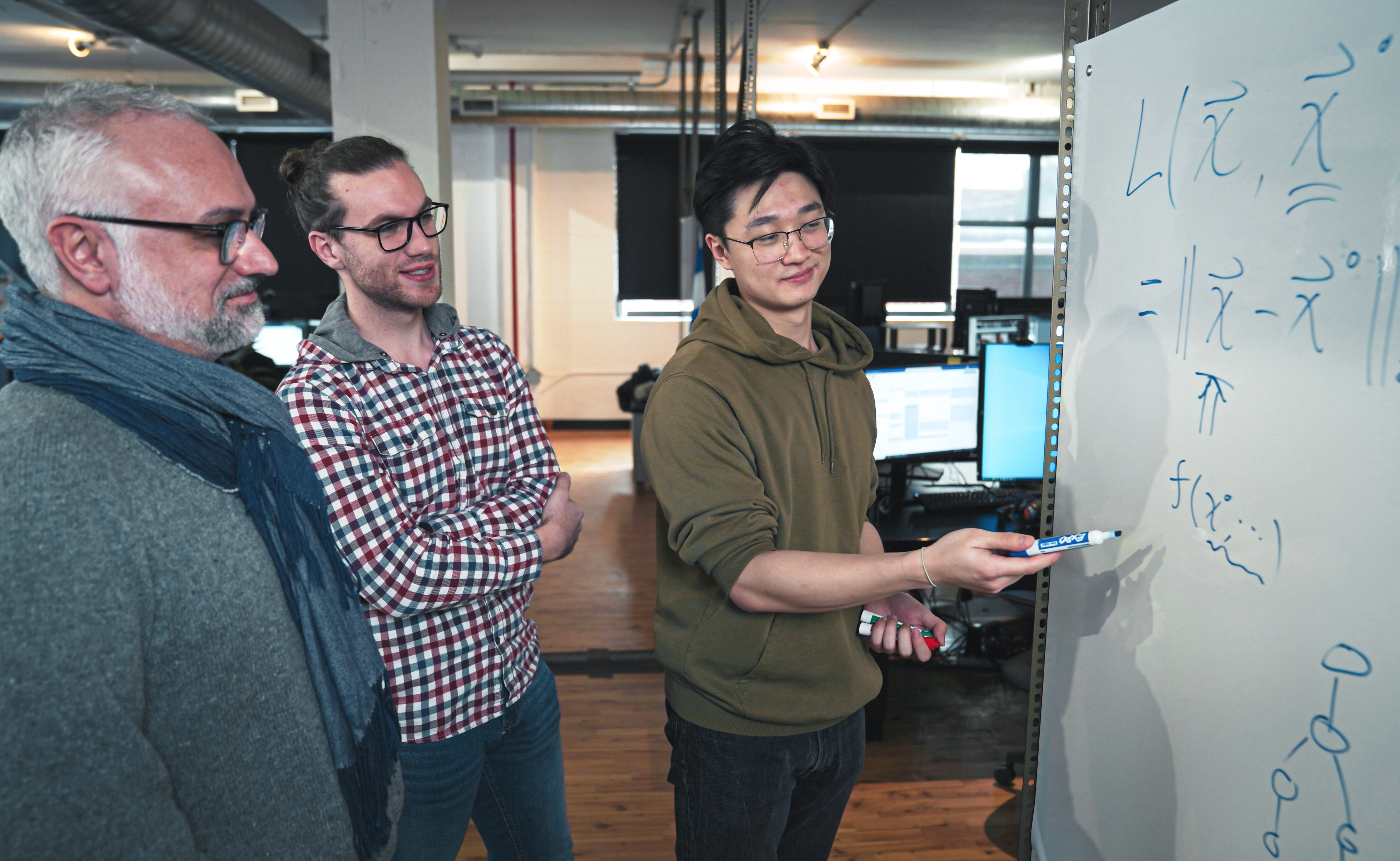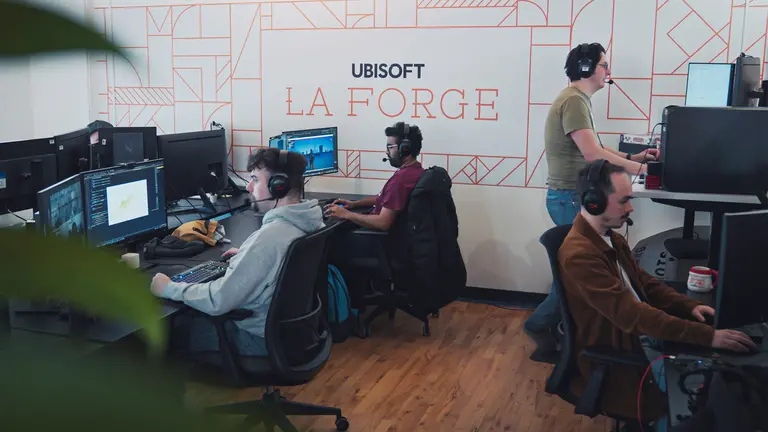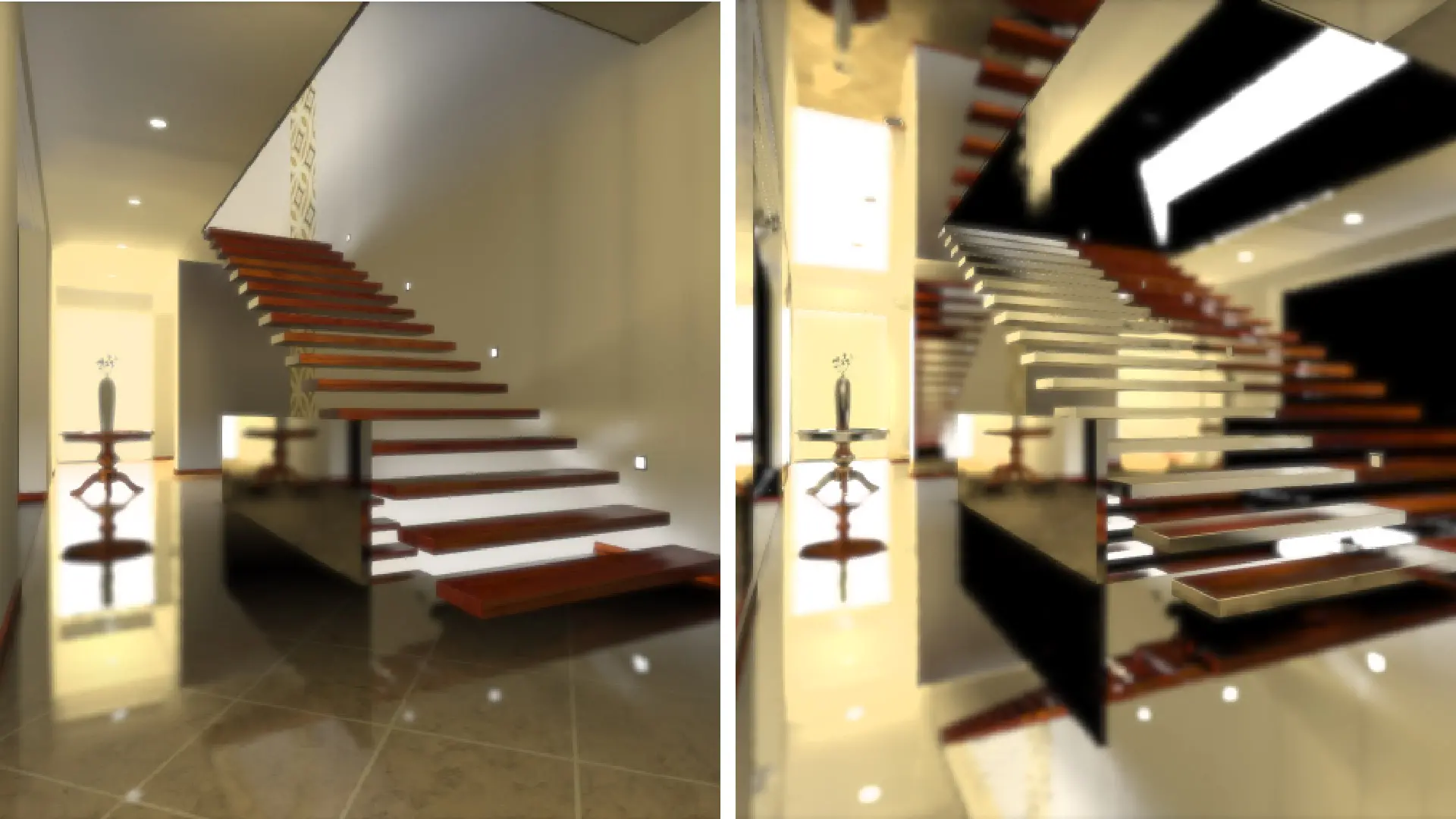Ubisoft-Mila Industrial Research Chair
Scaling Game Worlds with Responsible AI
Scaling Game Worlds with Responsible AI

While modern machine learning-based approaches have begun to permeate a variety of digital content regimes - such as text, image, audio and even video generation - key questions regarding the responsible consumption of human-created content that underpins these powerful techniques remain largely unanswered.
In the context of game world creation, what constitutes a healthy dynamic between purely learning-based and purely human content creation methods also raises important questions that need to be resolved.
As AI continues to make inroads into the video game industry, Mila and Ubisoft have teamed up to explore the responsible use of AI in scaling game worlds. This Chair builds on a long-standing research collaboration between Ubisoft and Derek Nowrouzezahrai, professor at McGill University and core academic member at Mila, including the NSERC/Ubisoft Industrial Research Chair in Believable Virtual Character Experiences.
The Chair will aim to increase both the quantity and scope of highly qualified personnel trained in this unique academic-industrial co-learning environment. Funds will be dedicated to research and training for tomorrow's creative and technical professions in Quebec.
The Ubisoft-Mila Industrial Research Chair will oversee a team of academic trainees from Mila, working alongside production and research experts from Ubisoft. The project will also help train a new cohort of qualified personnel able to assess and integrate creative AI solutions within the videogame industry.
This initiative is important as the industry continues to integrate learning-based and human-based content creation. With this Chair, this integration will be pursued through the development and launch of applied research prototypes. As the industry continues to support the evolution of new skills, it is also poised to develop highly qualified personnel in areas such as reinforcement learning, representation learning, realistic image synthesis, physics-based simulation, interactive graphics and machine learning, while also providing creative opportunities across the gaming landscape.

By spearheading technological tools designed, from the ground up, to support human creativity, this research initiative will pave the way for a new landscape in game development: one in which digital artists are supported by learning-based creation tools.

Computer graphics marry traditional creative processes with technology. By working hand-in-hand with artists, we are developing tools that build upon their intuitive creative abilities, literally changing the videogame landscape.

La Forge is Ubisoft’s research and development group. Bringing together experts from industry and academic sectors, La Forge uses the most recent scholarly research to facilitate game development and prototyping.
Aimed at ensuring ongoing innovation within the game-making process, current areas of study include topics such as rendering, animation, AI, audio, physics, and player behaviour. The prototypes developed by LaForge are intended for use in Ubisoft productions, and the lessons learned are shared with the academic sector.


With the recent acceleration of AI, we think this Chair is an opportunity to ensure that incoming AI innovations are designed with the goal of assisting the creators at scale. We trust the digital artists' unique expertise and believe it is by empowering them that the next generation of large-scale, immersive game worlds will be created.









Ubisoft and McGill researchers present their work at the SIGGRAPH North America 2022 conference.

Ubisoft and Mila researchers present their work at NeurIPS 2020.

Ubisoft and McGill researchers present their work at the ACM SIGGRAPH Eurographics Symposium on Computer Animation 2019.

Ubisoft and Mila researchers publish their work in ACM Transactions on Graphics.

Ubisoft and McGill researchers present their work at the ACM SIGGRAPH Symposium on Interactive 3D Graphics and Games 2019.